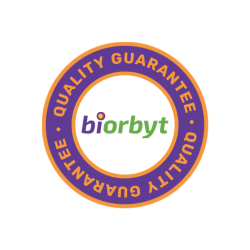You have no items in your shopping cart.
| Catalog Number | orb224181 |
|---|---|
| Category | Antibodies |
| Description | Rabbit polyclonal antibody to STAT5 (Phospho-Y694/699) |
| Target | STAT5A; STAT5B |
| Clonality | Polyclonal |
| Species/Host | Rabbit |
| Conjugation | Unconjugated |
| Reactivity | Human, Mouse, Porcine, Rat, Sheep |
| Form/Appearance | Liquid in 0.42% Potassium phosphate, 0.87% Sodium chloride, pH 7.3, 30% glycerol, and 0.01% sodium azide. |
| Buffer/Preservatives | Liquid in 0.42% Potassium phosphate, 0.87% Sodium chloride, pH 7.3, 30% glycerol, and 0.01% sodium azide. |
| Purification | The antibody was purified by immunogen affinity chromatography. |
| Immunogen | KLH-conjugated synthetic phosphopeptide corresponding to residues surrounding Y694/699 of human STAT5 protein. The exact sequence is proprietary. |
| UniProt ID | P42232, P52632, Q62771, P42229, P42230, P51692 |
| Tested applications | IH, WB |
| Dilution range | WB: 1:500-1:1000, IHC-P: 1:100-1:200 |
| Antibody Type | Primary Antibody |
| Source | Rabbit |
| Storage | Maintain refrigerated at 2-8°C for up to 2 weeks. For long term storage store at -20°C in small aliquots to prevent freeze-thaw cycles. |
| Alternative names | anti STAT5A antibody, anti STAT5 antibody, anti Si Read more... |
| Note | For research use only |
| Entrez | 6776, 20851, 24918, 25126, 20850, 6777 |
A Gavazza, S Mangiaterra, L Galosi, A Dottori Evaluation of serum and fecal parameters in cats with low-grade intestinal T-cell lymphoma (LGITCL) Research in Veterinary, (2024)

Western blot analysis of STAT5 (Phospho-Y694/699) expression in K562 (A) whole cell lysates. (Predicted band size: 90; 89 kD; Observed band size: 90 kD)

Immunohistochemical analysis of STAT5 (Phospho-Y694/699) staining in human breast cancer formalin fixed paraffin embedded tissue section. The section was pre-treated using heat mediated antigen retrieval with sodium citrate buffer (Phospho-H 6.0). The section was then incubated with the antibody at room temperature and detected using an HRP conjugated compact polymer system. DAB was used as the chromogen. The section was then counterstained with haematoxylin and mounted with DPX.



